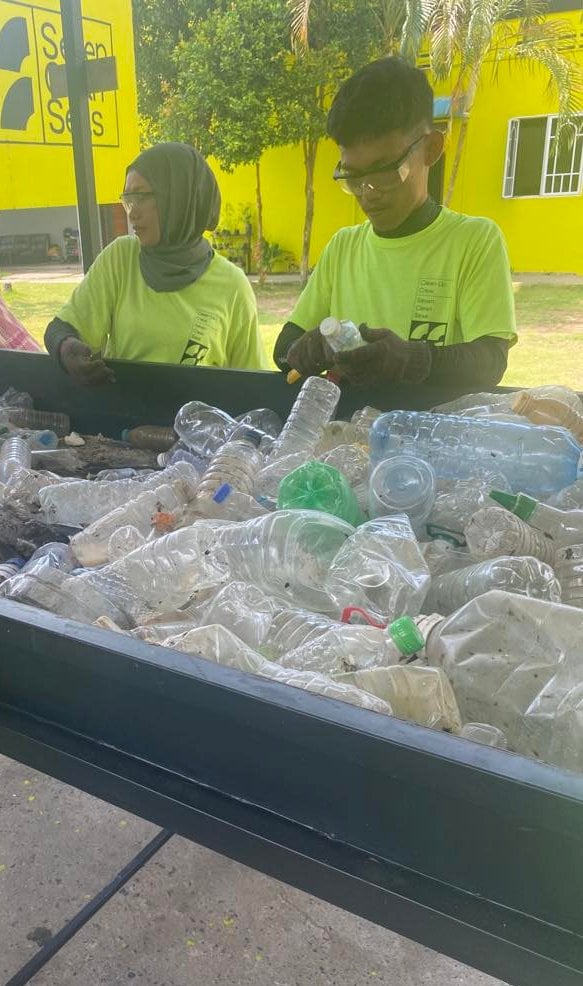
It's no secret our oceans are full of plastic.
Research tells us 11 million tonnes of plastic enter the world's oceans each year. And that's estimated to triple to 29 million tonnes by 2040, if no action is taken.
It's a staggering statistic – but one that's hard to visualise reading on a screen.
It wasn't until I was standing in the fishing village of Air Gelubi in Indonesia that the numbers started sinking in.
Watch: Seven Clean Seas and Not Soda clean up plastic pollution in Air Gelubi, Indonesia. Post continues below.
The village has one of the highest levels of environmental plastic waste leakage globally, a statement that is verified as soon as you step off the boat.
A few metres down the jetty, I was met with colourful piles of rubbish, so dense that it was blanketing sections of the water in between people's homes.
The further I walked around the village, the worse it became.
Plastic bags, food wrappers, textiles, rope, containers. It was everywhere.




